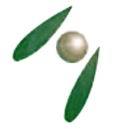
Pectin , E440 , Pectins
Product Details:
Product Description
Name: PectinSynonyms: Citrus pectin, Colyer pectin
CAS Number: 9000-69-5
Class: Gums - Waxes Thickeners
Pectin is especially abundant in fruit such as apples and citrus. Pectin is associated with cellulose in plant tissues, where it plays a fundamental role in determining their mechanical properties.
In plant cells, Pectin is linked to cellulose to form protopectin, which has the ability to absorb large amounts of water. Cellulose gives the supporting tissues their rigidity, whilst the pectic components give the plant its flexibility.
Pectin has only been produced industrially since early in the 20th century, but has long been used by housewives for gelling jams.
In industry and at home, Pectin is well known for its gelling, thickening and stabilizing properties. Today, it is used in such diverse applications as yogurt, confectionery and acid milk drinks. It has the image of a natural product and has acknowledged nutritional benefits. For all those reasons, new uses are constantly found for Pectin in the food industry, and also in pharmaceutical and cosmetic applications.
Application areas
Pectin is traditionally used in a wide range of fruit-based products in which it acts as a gelling agent. Pectin is also used to adjust the mouthfeel of fruit-based beverages and as a protein stabiliser in acidified milk products such as yoghurt.
Specification
| product | Pectin |
| Appearance | Off-Yellow Powder |
| Gel degree: (Sag) | 1500±5 |
| Degree of Esterification | 50% Min |
| Bulk Density | 0.7 0.8g/cm3 |
| Particle Size | 60 Mesh |
| Galacturonic acid | 65% Min |
| Moisture | 8.0% Max |
| Ash | 5.0% Max |
| pH | 2.6 3.0 |
Package: Crystal product is 25kgs/compound bag; fiber drums;
Storage: Stored in a dry and cool place, keep away from strong light and heat.
Shelf life: Two years when stored properly in a well-closed container.
Other Products in 'Dietary & Nutritional Supplements' category
 |
A & Z Group Co.,Ltd
All Rights Reserved.(Terms of Use) Developed and Managed by Infocom Network Private Limited. |
 English
English Spanish
Spanish French
French German
German Italian
Italian Chinese (Simplified)
Chinese (Simplified) Japanese
Japanese Korean
Korean Arabic
Arabic Portuguese
Portuguese





 Send Inquiry
Send Inquiry